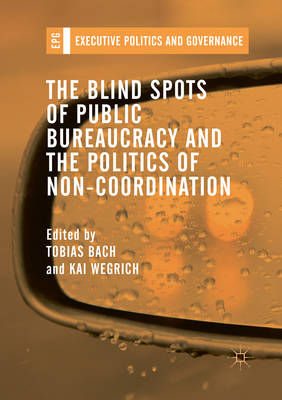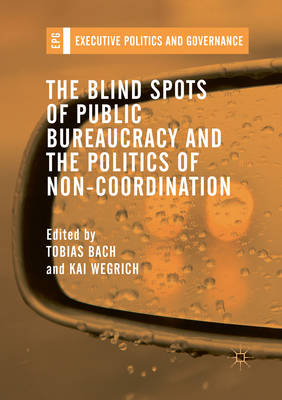
Door een staking bij bpost kan je online bestelling op dit moment iets langer onderweg zijn dan voorzien. Dringend iets nodig? Onze winkels ontvangen jou met open armen!
- Afhalen na 1 uur in een winkel met voorraad
- Gratis thuislevering in België vanaf € 30
- Ruim aanbod met 7 miljoen producten
Door een staking bij bpost kan je online bestelling op dit moment iets langer onderweg zijn dan voorzien. Dringend iets nodig? Onze winkels ontvangen jou met open armen!
- Afhalen na 1 uur in een winkel met voorraad
- Gratis thuislevering in België vanaf € 30
- Ruim aanbod met 7 miljoen producten
Zoeken
The Blind Spots of Public Bureaucracy and the Politics of Non‐coordination
€ 105,45
+ 210 punten
Omschrijving
How to better coordinate policies and public services across public sector organizations has been a major topic of public administration research for decades. However, few attempts have been made to connect these concerns with the growing body of research on biases and blind spots in decision-making. This book attempts to make that connection. It explores how day-to-day decision-making in public sector organizations is subject to different types of organizational attention biases that may lead to a variety of coordination problems in and between organizations, and sometimes also to major blunders and disasters. The contributions address those biases and their effects for various types of public organizations in different policy sectors and national contexts. In particular, it elaborates on blind spots, or 'not seeing the not seeing', and different forms of bureaucratic politics as theoretical explanations for seemingly irrational organizational behaviour. The book's theoretical tools and empirical insights address conditions for effective coordination and problem-solving by public bureaucracies using an organizational perspective.
Specificaties
Betrokkenen
- Uitgeverij:
Inhoud
- Aantal bladzijden:
- 269
- Taal:
- Engels
- Reeks:
Eigenschappen
- Productcode (EAN):
- 9783030095529
- Verschijningsdatum:
- 15/12/2018
- Uitvoering:
- Paperback
- Formaat:
- Trade paperback (VS)
- Afmetingen:
- 148 mm x 210 mm
- Gewicht:
- 453 g

Alleen bij Standaard Boekhandel
+ 210 punten op je klantenkaart van Standaard Boekhandel
Beoordelingen
We publiceren alleen reviews die voldoen aan de voorwaarden voor reviews. Bekijk onze voorwaarden voor reviews.










